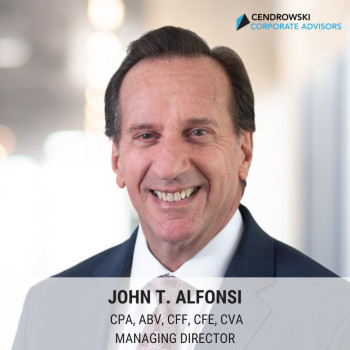
Cendrowski Corporate Advisors
Reviews Summary
About This Listing
Who Can Work with a CPA?
*Note: CPAs may specialize in different areas. Be sure to check credentials and service offerings.*
First-Time Clients
If this is your first time working with a CPA, don’t worry — most professionals offer a free consultation and will walk you through what to expect. You may be asked to complete an intake form, share financial documents, or set clear goals for your session.
What to Know Upfront:
*Note: Every CPA operates a bit differently. Don’t hesitate to ask questions before committing.*
What to Bring
*Tip: Organize your documents in advance to save time and ensure accuracy.*
Preparing for Your Appointment
*Note: Preparation helps you make the most of your CPA’s expertise.*
How to Get Started
Other Helpful Info
*Note: Every CPA is different — take time to find one who fits your goals and style.*
Features
Contact Information
Address
4111 Andover Rd Third Floor
Bloomfield Hills, Michigan 48302
Phone
+1 866-717-1607Hours
Customer Reviews
I had the pleasure of attending a presentation by Harry Cendrowski and John Alfonsi of Cendrowski Corporate Advisors on building value in a business and accurately measuring that value through financial reporting. Their depth of knowledge in this area was evident from the outset, as they delved into complex concepts with clarity and precision. What truly set them apart, however, were their exceptional communication skills?breaking down intricate topics into understandable terms, ensuring everyone in the roo
Harry Cendrowski has proven to be an invaluable resource to me and the circle of trusted advisors I have collaborated with over the past year. His extensive knowledge across various critical areas within the family office sector has been enlightening. I highly recommend him, particularly for family-run businesses seeking tailored financial strategies and robust internal control systems. Additionally, it's reassuring to know that Harry is capable of providing guidance to my clients nationwide.
Our financial advisor from CCA is such an asset to our company. We never make a major move without consulting him. We have been able to save a lot of money by listening to his well-thought out ideas and advice.
I own a private company, and with all these security breaches in huge national stores (like Target) I wanted to make sure my company?s sensitive data was extremely secure. I hired CCA to do a fraud deterrence assessment, they picked up on some weak spots and advised me on how I could improve my security. Very simple, but well worth it.
My non-profit organization is fairly new, and it?s my first one, so I?m still far from an expert. Thankfully CCA is giving me great advice on how to keep my non-profit going strong and well-funded. Their help with grantmaking due diligence has been irreplaceable! I think CCA and I will work together for a long time.
The consultants here helped us so much when we were going through a business dispute with one of our shareholders. We were prepared for an absolute nightmare but with their help- and great strategy- we were able to come up with a solution that benefited everyone and lead to as little tension as possible. The rest of our shareholders and I are grateful beyond words for how smoothly it all went.